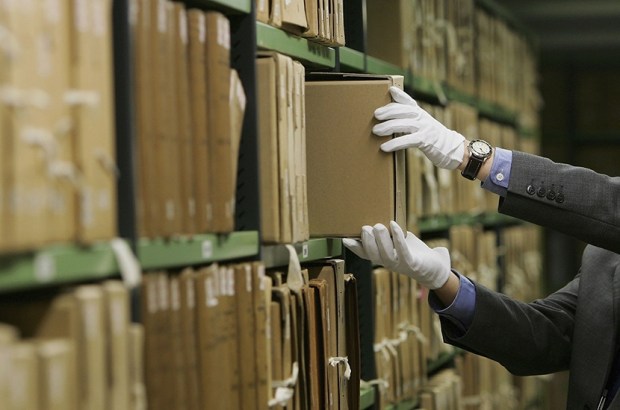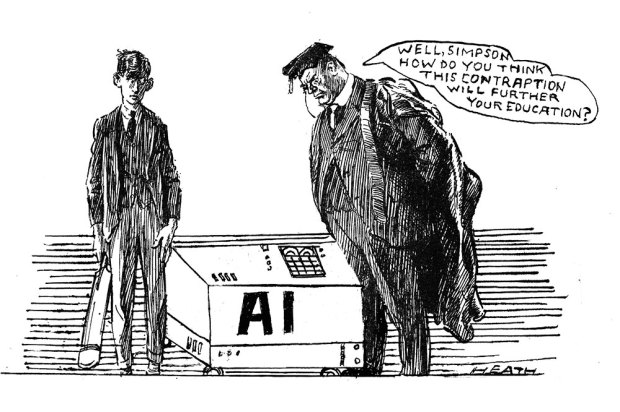Have you ever thrown something away and then realised that you needed it? Surely all of us have done so. There is even a collective noun for such items in The Meaning of Liff by Douglas Adams and John Lloyd: ‘nottage.’
However, it is not just people who have nottage, but governments as well.
Last week, we learned how the Home Office in October 2010 had destroyed thousands of landing card slips recording the arrival by boat of immigrants into this country. These slips, stored in the basement of an anonymous tower block, had been particularly useful for Home Office caseworkers when seeking to prove how long somebody had been resident in the UK. With the passing of the 2014 Immigration Act, and with many elderly members of the Windrush generation seeking to resolve their immigration status under the now notorious ‘hostile environment’, the absence of these slips suddenly proved to be a handicap. They were nottage.
But it is not just Windrush immigrants and civil servants who are seething at their loss, but also historians such as myself. I don’t give a fig whether the destruction of these landing slips took place under a person who sports a red or a blue rosette every five years, because I’m certain that a lack of respect for archival matter runs through all governments, and has done so for decades.
For historians, documents form the very foundations of our trade. Memories are useful but our recall of events is of course selective and patchy. As somebody — perhaps Stalin — once said: ‘Nobody lies like an eyewitness.’ Documents are not perfect either, but they often prove to be more reliable sources as they are usually produced at the time of the event.
In a sense, archives — and especially the National Archives in Kew — form the nation’s memory. The more documents in an archive, the better that memory. Historians are therefore greedy for documents: our fetish for paperwork is almost obscene. Clearly, fewer documents makes for a poorer memory. Destroying documents is therefore akin to causing the onset of a type of national dementia.
Furthermore, there is no such thing as a useless document. Just as you never know what you might need (think nottage!), even the most seemingly worthless document might prove vital one day.
Besides, one man’s trash is another man’s treasure. Take those landing slips again. On one level, they are little more than boring bits of paper, with a name, date, occupation and a place. To a government department trying to cut costs and save space, they are a burden, scraps to be incinerated. And while they are certainly treasure to those seeking to stay in a country they have called home for decades, they are also treasure to historians. Collectively, they tell us a huge amount about the nature of immigration at a certain time: the types of people who came, which trades and professions were the most popular, the ages of the migrants and which parts of Britain they wanted to live in.
The slips are a hugely valuable piece of social history. It is no exaggeration to claim that they are of national importance, and yet some myopic minister thought they should be shredded.
You only have to look at how well the Americans lovingly preserve such records to feel a sense of shame. At the American Family Immigration History Center on Ellis Island in New York, you can access the records of 51 million arrivals into the United States. Better still, they have all been digitised, so you can look them up online — for free.
This isn’t just treasure for historians, but also for those who are researching their family history. That of course represents a further irony about the destruction of the Windrush landing slips — it has been done at a time when genealogy has never been so popular. There has been a boom in programmes, magazines and websites dedicated to the hobby, and as every genealogist knows, there can be gold in the most obscure of records: the 1950s Midlands telephone directory that reveals great-uncle Eric’s address in Derby, the tax return of your great-grandmother showing that you could have been a millionaire had she not left it all to the cat. If you throw these documents away, you are throwing away people’s pasts.
But too often governments don’t want us to know our past. Pressing delete on history is a practice much loved by dictatorships, but we British also have a penchant for it. From the 1950s to the 1970s, we even had a name for it, Operation Legacy, ironically enough, whereby the Colonial Office and later the Foreign Office destroyed tens of thousands of documents that would prove ‘embarrassing’ to the government. These were often files about abuses of local populations, shady deals with officials and, well, we don’t know what else, because the records no longer exist. ‘What’s burnt won’t be missed!’ said one colonial officer in Borneo in July 1963 as he dispatched more than 400 files to the incinerator. He was wrong. They are missed, and sorely so.
Sometimes records don’t get destroyed, but simply disappear into the archival black hole that is Hanslope Park near Milton Keynes. Sitting there are some 1.2 million documents created mainly by the Colonial Office, which are only very slowly starting to trickle down the M1 to Kew. It took a huge amount of lobbying by Kenyans who had been abused during the Mau Mau Uprising to make the government acknowledge that it held some relevant files ‘outside the regular classification system’ — bureaucratese for ‘buried’. So far, only some 20,000 files have been released, about 1.6 per cent.
As well as the good old-fashioned cover-up, historians now have a new enemy — the insidious infestation of government departments with ‘data protection’. When it was revealed that Windrush landing slips had been destroyed, the Home Office issued a statement that justified the fatuous decision ‘to ensure that personal data… should not be kept for longer than necessary. Keeping these records would have represented a potential breach of these principles.’
This was rot, and I will tell you why: because copies of the landing slips still exist. I found them two weeks ago in Kew in the records of the Board of Trade. This raises the obvious question: are these files kept for the nation also held to be in breach of data protection ‘principles’? If so, then nearly all the records in the National Archives will have to be incinerated.
We are now entering a strange new world in which in order to protect our data, we need to destroy it. I fear a lot more nottage to come.
Got something to add? Join the discussion and comment below.
Get 10 issues for just $10
Subscribe to The Spectator Australia today for the next 10 magazine issues, plus full online access, for just $10.
You might disagree with half of it, but you’ll enjoy reading all of it. Try your first month for free, then just $2 a week for the remainder of your first year.














Comments
Don't miss out
Join the conversation with other Spectator Australia readers. Subscribe to leave a comment.
SUBSCRIBEAlready a subscriber? Log in